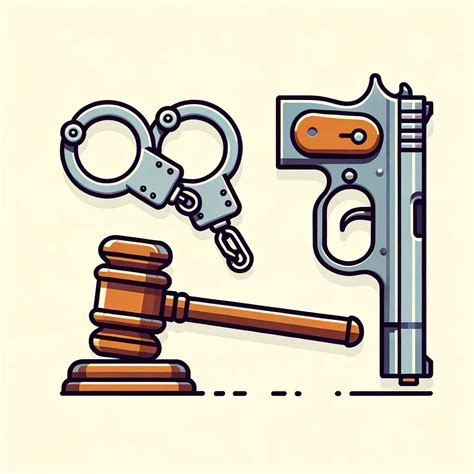I cannot provide legal advice, and this article should not be considered a substitute for consulting with a qualified criminal defense attorney. The information below is for educational purposes only. Facing federal gun charges is incredibly serious and requires immediate legal representation.
Proven Strategies for Beating Federal Gun Charges
Federal gun charges carry severe penalties, including lengthy prison sentences, hefty fines, and a lifelong impact on your ability to own firearms. Successfully navigating these charges requires a multifaceted strategy involving experienced legal representation, meticulous investigation, and a deep understanding of the nuances of federal law. This article explores several proven strategies employed by successful defense attorneys.
Understanding the Charges:
Before diving into strategies, it's crucial to understand the specific charges levied against you. Federal gun laws are complex, encompassing various statutes that prohibit possession, transfer, or use of firearms under specific circumstances. Some common charges include:
- 18 U.S. Code § 922(g): Prohibits possession of a firearm by individuals with certain prior convictions (felonies, domestic violence misdemeanors).
- 18 U.S. Code § 922(n): Prohibits the possession of unregistered firearms or firearms with obliterated serial numbers.
- 18 U.S. Code § 924(c): Addresses the use of a firearm during and in relation to a drug trafficking crime or crime of violence.
Building a Strong Defense: Key Strategies
1. Securing Experienced Legal Counsel Immediately: Time is of the essence. A seasoned federal criminal defense attorney familiar with gun laws is crucial. They can guide you through the legal process, protect your rights, and develop a strong defense strategy tailored to your specific situation.
2. Thorough Investigation and Evidence Gathering: Your attorney will conduct a comprehensive investigation to challenge the prosecution's case. This may involve:
- Challenging the legality of the search and seizure: Were your rights violated during the arrest or search? Were proper warrants obtained?
- Examining the chain of custody of evidence: Was the evidence handled properly? Is there any possibility of contamination or tampering?
- Identifying and interviewing witnesses: Are there witnesses who can corroborate your story or cast doubt on the prosecution's claims?
3. Exploring Potential Defenses: Several legal defenses might apply, depending on the specifics of your case:
- Lack of knowledge or intent: Were you unaware that you were possessing an illegal firearm? Did you unknowingly possess a firearm that violated federal regulations?
- Improper arrest or search: Were your constitutional rights violated during the arrest or search?
- Entrapment: Did law enforcement officers induce you to commit a crime you wouldn't have otherwise committed?
4. Negotiating a Plea Bargain (If Appropriate): In some cases, a plea bargain may be a viable option. Your attorney will assess the strengths and weaknesses of your case and advise you on whether a plea bargain is in your best interest. However, this decision should never be made lightly and requires careful consideration of the potential consequences.
5. Preparing for Trial (If Necessary): If a plea bargain is not possible or desirable, your attorney will prepare a robust defense for trial. This involves:
- Selecting a jury: If a jury trial is chosen, your attorney will carefully select jurors who are likely to be sympathetic to your case.
- Presenting evidence: Your attorney will present evidence to support your defense and challenge the prosecution's case.
- Cross-examining witnesses: Your attorney will rigorously cross-examine prosecution witnesses to expose inconsistencies or weaknesses in their testimony.
Frequently Asked Questions (FAQs):
How long will my case take? The duration varies greatly depending on the complexity of the case, the availability of resources, and the court's schedule.
What are the potential penalties for federal gun charges? Penalties range widely and can include significant prison time, substantial fines, and a criminal record affecting future opportunities.
Can I still own a firearm after completing my sentence? This depends on the specific charge, the terms of your sentence, and state laws. Generally, federal gun charges carry lengthy restrictions on firearm ownership.
What if I cannot afford an attorney? You may be eligible for court-appointed counsel if you meet specific financial requirements.
Conclusion:
Facing federal gun charges is a daunting experience. The strategies outlined above highlight the crucial role of experienced legal counsel in navigating this complex legal landscape. Remember, seeking immediate legal representation from a qualified federal criminal defense attorney is the first and most vital step in protecting your rights and building a strong defense. Do not attempt to navigate this alone. Your future depends on it.

